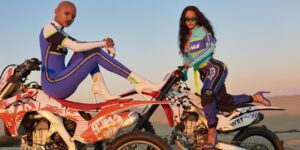Street artists in Rwanda have found an innovative way to contribute to the fight against COVID-19. Local artists have been filling walls across the country with bright colors communicating the prevalent health message of staying safe during the global pandemic. It is the latest initiative the country has taken in its preventive measures to continue to curb the spread of the virus.
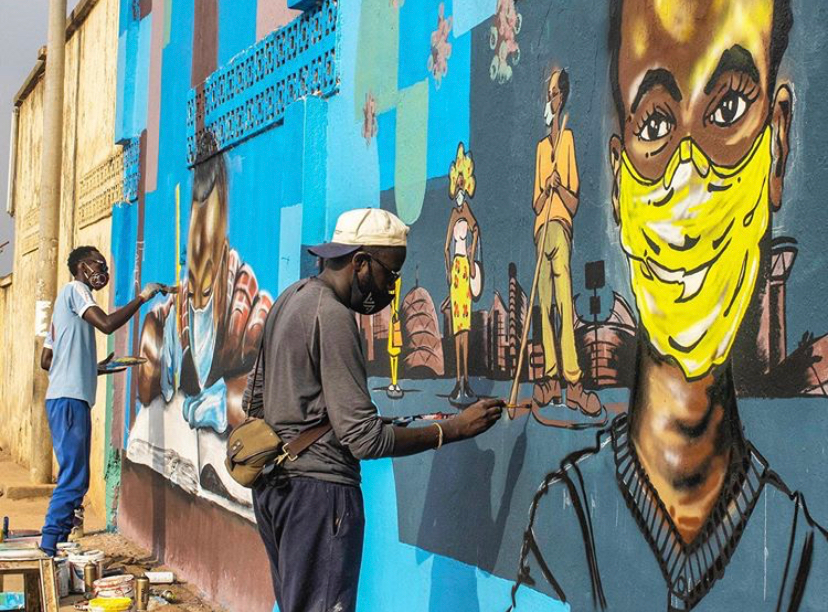
Photo: Kurema Kureba Kwiga
A group of artists, part of the collective known as Kurema, are putting up the local street art. Kurema, Kureba, Kwiga, which translates to “To Create, To See, To Learn,” is Rwanda’s preeminent public-arts social enterprise and custom art services provider. The group uses art to engage the public and advocate for social change. This is the first time that Kurema has painted murals.
Artist Jimmy Rolland goes out every day decorating walls with his murals. His piece is one of nine street art murals that have appeared throughout Kigali. “This COVID-19 wants attention, you have to see it, so I am using strong colors to attract attention to my artwork, to attract attention to my message to show that people need to see what they should do,” he said in an interview with AfricaNews. His painting serves as a reminder to stay safe by wearing a mask. He encourages viewers to stay strong and hope for the best. In his mural a woman can be seen wearing a bright pink mask surrounded by different vibrant colors. The pop of color makes the mural hard to miss by any passerby.
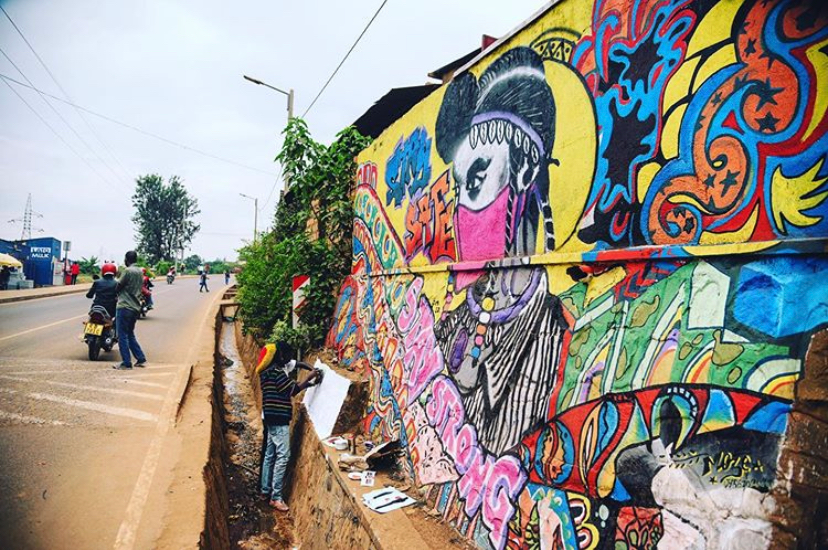
Many of the pieces in the series incorporate bright colors that draw in viewers. Another piece by artist William ‘Wing’ Ngendandume depicts a woman wearing a bright red mask and to the left germs appear to fly away from earth. To the right is a radiant earth with doves flying and people down below with their arms raised. The group’s ,Instagram page shares that this piece conveys a message of hope and resiliency about working together to fight COVID-19 to create a healthy future. “The bright figures are a reminder of our shared humanity and experience in fighting against the global pandemic,” the caption reads.
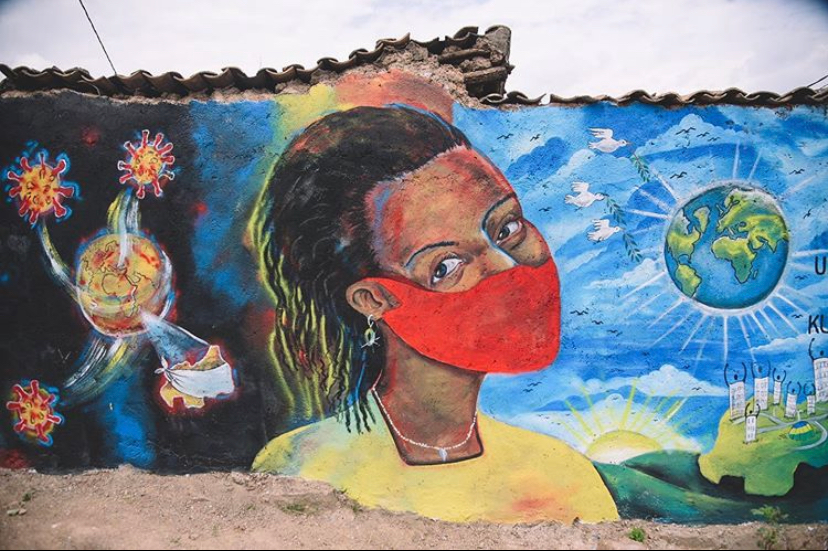
Kurema currently consists of 14 artists and is funded by the Rwandan government, along with the Israeli and German embassies. Artists submit their ideas and proposals for street projects centered around COVID-19 with a message of public health and safety, community resilience and hope, or reflection of the world they hope arises from this crisis. Artist Willy Karekezi emphasizes the importance of collaboration saying, “we believe that only one man cannot give the whole idea so we discuss, we take decisions, and then we make in practice what we have been talking about.” From there they hone the details to deliver a specific message. While each piece communicates a similar message, they each embody their own unique design.
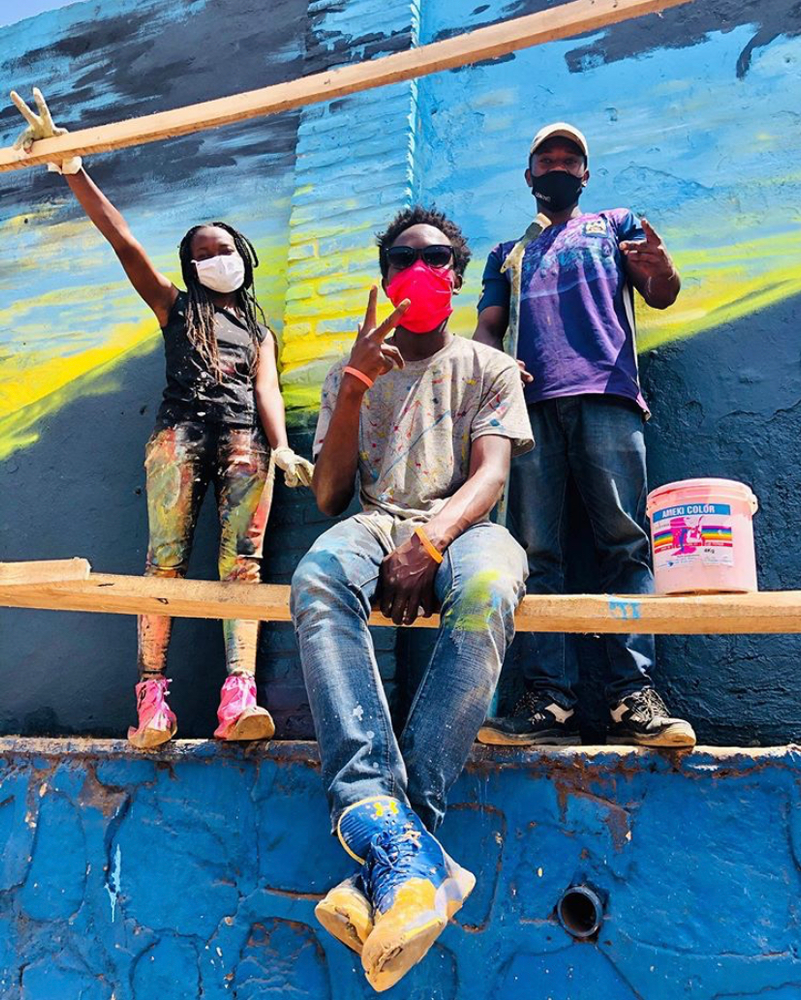
Rwanda so far has more than 4,200 confirmed cases of COVID-19 and 18 deaths. While the level of infections are relatively low, the government has laid out strict measures in an attempt to prevent the spread of the virus. In fact, the country has been hailed as a Coronavirus success story for its efforts in curbing the virus. Despite having a per capita income of about $2,000 per year, Rwanda provides testing and treatment for the virus for free. While testing has been difficult or nearly impossible in some countries, in Rwanda people simply walking down the street can find themselves being asked if they wish to get tested. The country has mobilized community health care workers, police, and college students to work as contact tracers. It even used human-size robots in clinics to take patients’ temperatures and deliver supplies.
Rwanda responded early and placed some of the tightest lockdown restrictions compared to every other African country. Based on a conclusion from mobile phone movement data, the country has physically distanced the second most across Africa. South Africa takes the top spot. In addition, big markets have been suspended for the time being and commuter buses in Kigali have limited entries and exits. In an effort to enforce the rules, fines of up to $20 are applied for not wearing a face mask or wearing it incorrectly, and for being in violation of the 7 p.m. curfew. According to local government figures, 15,000 people were arrested for being outside past curfew and 4,000 for not wearing face masks between August 27 and 29 alone.
Judith Kaine, Founder Director of Kurema, hopes that the artwork and the messages of creative people in society “help reach audiences and inspire them to take care of themselves and do the behavior changes that are necessary to protect everybody.” Kurema’s work can be found across the country, and after the pandemic their sights are set on addressing environmental protection.
Powered by WPeMatico


